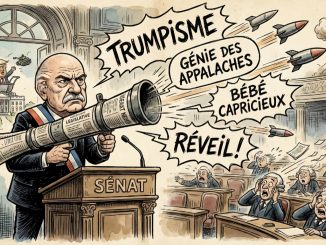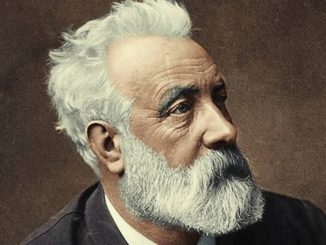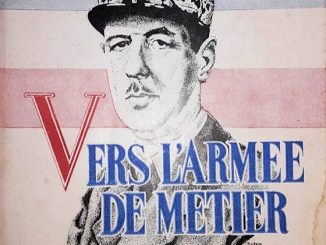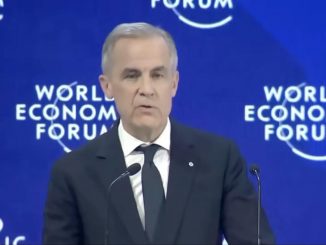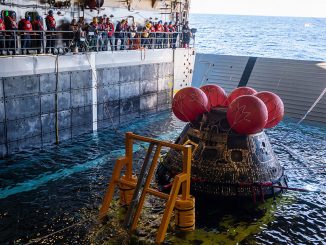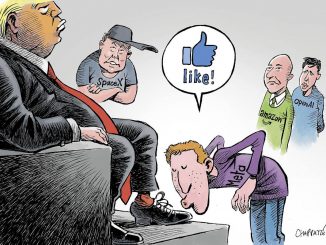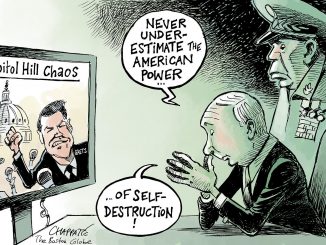Since Donald Trump’s arrival at the White House, it has become clear that a significant shift has taken place in international diplomacy, particularly in the context of the Ukrainian conflict, moving from traditional “Realpolitik” to “Real-Estate-Politik.” This new approach is characterized by the appointment of individuals from the real estate and business sectors, rather than those with diplomatic experience, to lead complex geopolitical negotiations.
A very relevant article by Felicia Schwartz in Politico [1] takes the example of Steve Witkoff’s role in Ukraine and sees it as a dangerous simplification of complex historical and human issues, reducing international relations to transactional “deals” and dismissing critical examination by journalists as “foreign influence operations.” The parallel with Jared Kushner’s involvement in the Middle East is striking, arguing that this kind of approach prioritizes short-term transactional gains at the expense of comprehensive, long-term conflict resolution, with potentially disastrous consequences.
Table of Contents
by Joël-François Dumont — Paris, August 30, 2025 —
Bulldozer Diplomacy: When Real Estate Developers Want to Build World Peace
Welcome to the future. It is August 29, 2025, and the world of diplomacy has changed. It no longer smells of mothballs in hushed embassies, but rather of fresh concrete and the scent of profit. The reason? Men like Steve Witkoff, New York real estate magnate and personal friend of President Trump, are now in charge of the most pressing issues on the planet.
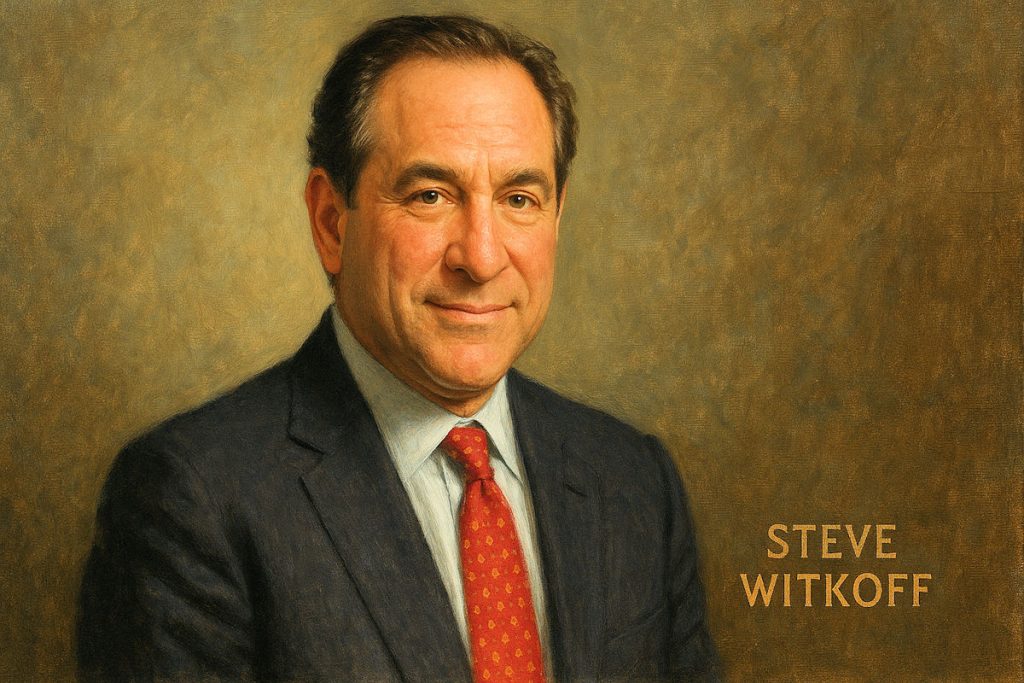
The article in Politico,[1] which sparked controversy in this alternative reality (or perhaps not so distant), paints a picture that is both fascinating and terrifying: the chief negotiator for peace between Russia and Ukraine is not a career diplomat, but a man whose greatest achievement is having built towers of glass and steel. His great merit is that he always loses at golf when he plays with his supreme leader!
This appointment, far from being an anomaly, is symptomatic of a new doctrine: “Real-Estate-Politik.” The idea, simple and appealing on paper, is that a “dealmaker,” a man accustomed to high-stakes negotiations where billions are at stake, would be better suited to “resolve” a conflict than a group of stuffy civil servants. After all, what is war if not a very bad real estate deal where both sides are fighting over land?
“An operation of foreign influence”: “When the thermometer is accused of having a fever” [2]
Felicia Schwartz’s article in Politico had the audacity to point out what seems obvious: Mr. Witkoff’s total inexperience in Slavic geopolitics. It is both symptomatic and revealing of a “bungling” administration with a few useful idiots in the service of the Kremlin. Citing anonymous sources, the paper depicts a special envoy who, according to Reuters, “misunderstood Putin’s offer to exchange territories, leaving European leaders ‘stunned.’” Oops.
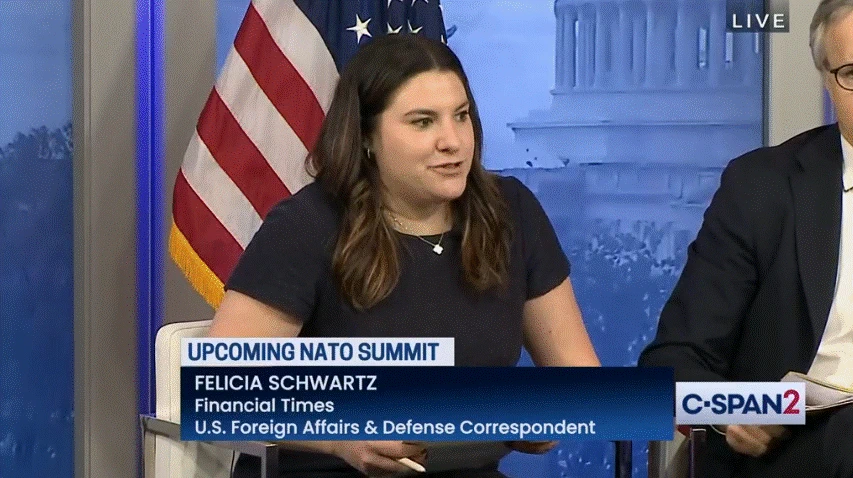
The reaction of the Trump 2.0 administration, as reported by a myriad of media outlets following the article, is a masterpiece of crisis communication, bulldozer style. Vice President JD Vance,[3] in a fiery tirade on X (formerly Twitter), does not mince words. The article is not journalistic criticism, no. It is, I quote, a “foreign influence operation” and a “journalistic error”. He accuses the journalist of being either “not very intelligent or a willing accomplice.”
This is where the humor, if you can call it that, borders on genius. The administration does not defend Witkoff on the merits (her competence), but attacks the messenger with nuclear force. The message is clear: to criticize the President’s envoy is to be complicit with the enemy. As Witkoff himself proudly says, cloaking himself in the legitimacy conferred on him by his boss:
“This statement from our incredible Vice President speaks for itself. Thank you, Mr. Vice President. It is an honor for me to serve in the Trump administration.”... The circle is complete. Competence is no longer a prerequisite; loyalty is the only qualification that counts.
The Kushner precedent: The angel of real estate in the Middle East
To understand the ”Witkoff phenomenon,” we need to look in the rearview mirror. Because this is not a first attempt. It’s season 2 of a series that has already enjoyed some success: that of Jared Kushner, the President’s son-in-law and, like him, a real estate developer propelled to the rank of great architect of peace in the Middle East. The French are discovering the first steps of his father, the current ambassador to Paris, as a “diplomat,” the man whom Donald Trump 1.0 had once pardoned! What a wonderful world!
Jared Kushner arrived with no diplomatic experience, his only compass being his address book and his proximity to power. He was entrusted with the most intractable conflict on the planet, a quagmire where generations of diplomats had failed. And, against all odds, he produced a result: the Abraham Accords.
A success? Yes, if we consider the normalization of relations between Israel and several Arab countries as an end in itself. Kushner approached the problem like a developer: by circumventing the main obstacle.
The difficult “client,” the recalcitrant tenant—the Palestinians—was simply taken out of the equation. The “deal” consisted of offering attractive economic and military benefits (F-35 fighter jets for the Emirates, for example) in exchange for a signature. It’s brilliant, it’s transactional, it’s pure “deal-making.” But it didn’t resolve the conflict. It swept it under the rug, hoping no one would trip over it.
Witkoff in Ukraine is the promise of “Kushner 2.0” applied to Eastern Europe. The method is the same: find leverage points, “sweeteners” to make the pill easier to swallow. There is already talk of lifting energy sanctions against Russia. The idea is to transform an existential conflict, steeped in history, culture, and blood, into a simple negotiation of “territorial concessions and security guarantees.” You don’t negotiate the Donbass like you sell a tower in Dubai, but the desire to believe so is strong.
From “Realpolitik” to “Real-Estate-Politik”
Why this obsession with real estate moguls? Because they embody a particular worldview, one that appeals to a certain electorate and a certain type of leader.
- The cult of “Closer”: In the business world, and even more so in real estate, all that matters is “closing the deal.” The developer is a man of action who doesn’t care about procedures and “moods.” He sees a vacant lot (a frozen conflict) and wants to build something on it, no matter the complications. This “results at any cost” mentality is seen as an antidote to the slow and frustrating bureaucracy of traditional diplomacy.
- The world is a balance sheet: For a developer, everything has a price. A border, a port, a region… these are assets. Human lives? Liabilities. This disembodied vision allows for “solutions” that would horrify a historian or humanist, but which seem logical on a spreadsheet. Trading territory for an end to sanctions? It’s a simple cost-benefit trade-off.
- The denial of complexity: Finally, and perhaps most importantly, this approach is a flat-out rejection of the complexity of the world. The idea that centuries of conflict, national identities, and historical wounds can be resolved by two men in a room shaking hands is the height of simplistic thinking. But it is a reassuring simplification. Diplomacy, after all, should be no more complicated than the slogan that made it famous: “Location, Location, Location.”
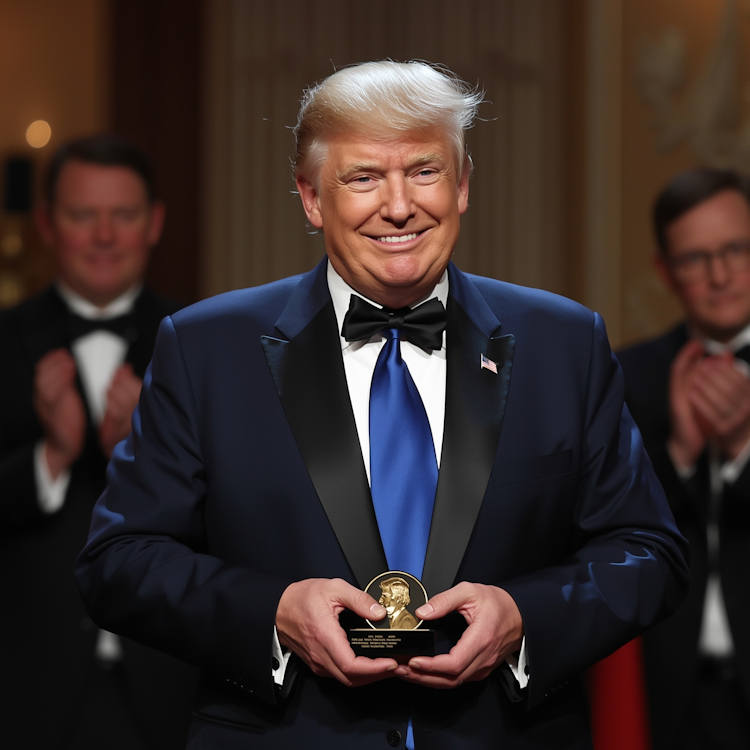
In conclusion, Steve Witkoff’s epic tale set in 2025, whether it be a work of fiction from Politico or a premonition, holds up a mirror to us. It shows us a world where expertise has become suspect and where the brutal pragmatism of the business world is seen as the ultimate solution. The risk is immense. Because while a bad real estate deal costs you money, a bad diplomatic deal costs human lives.
Donald has only one dream…
The real question is whether the Norwegian Nobel Prize jury has a price. Only time will tell!
Illustration © AI European-Security
The world is waiting to see whether the next peace agreement will be signed on a formal international treaty… or on the back of a paper napkin in a private club in Mar-a-Lago. And that’s no joke. Not entirely, anyway.
Joël-François Dumont
[1] See ‘His inexperience shines through’: Steve Witkoff struggles to manage Russia as Trump peace envoy in Politico: Witkoff’s solo approach has led to repeated miscues with Russia, leaving Trump’s pledge to quickly end the war between Russia and Ukraine adrift, by Felicia Schwartz — (2025-0829) —
[2] Phrase borrowed from Françoise Thom during a debate on LCI last July. Drawing a parallel between Putin’s decision to classify statistics and Stalin, who had demographers who published figures showing a decline in population after the great purges of 1937-1938 shot, she said: “The best way to avoid having a fever was to break the thermometer.”
[3] Watch and listen again (you’ll never tire of it) “War in Ukraine: ‘Washington has become Nero’s court,’ says Claude Malhuret in the Senate: ‘Face up to it. And first of all, don’t make a mistake…’ — (2025-0304) — Washington has become Nero’s court…
See Also: « De la “Realpolitik” à la “Real-Estate-Politik » — (2025-0830)
In-depth Analysis
In 2025, peace in Ukraine is no longer a matter for diplomats, but for a real estate tycoon: Steve Witkoff, a friend of Trump, parachuted in as chief negotiator with zero experience. In the face of his blunders, all journalistic criticism is aggressively dismissed as a “foreign influence operation.” This marks the rise of “Real-Estate-Politik,” where war is treated like just another business deal. This playbook, first seen with Jared Kushner in the Middle East, reduces geopolitics to a transaction. Nations become assets, borders become contractual clauses, and human lives are a mere liability. The complexity of history is denied in favor of a bottom-line mentality. Peace is no longer an ideal to strive for, but simply a deal to be closed. And the greatest tragedy is watching the world applaud this deadly oversimplification.



